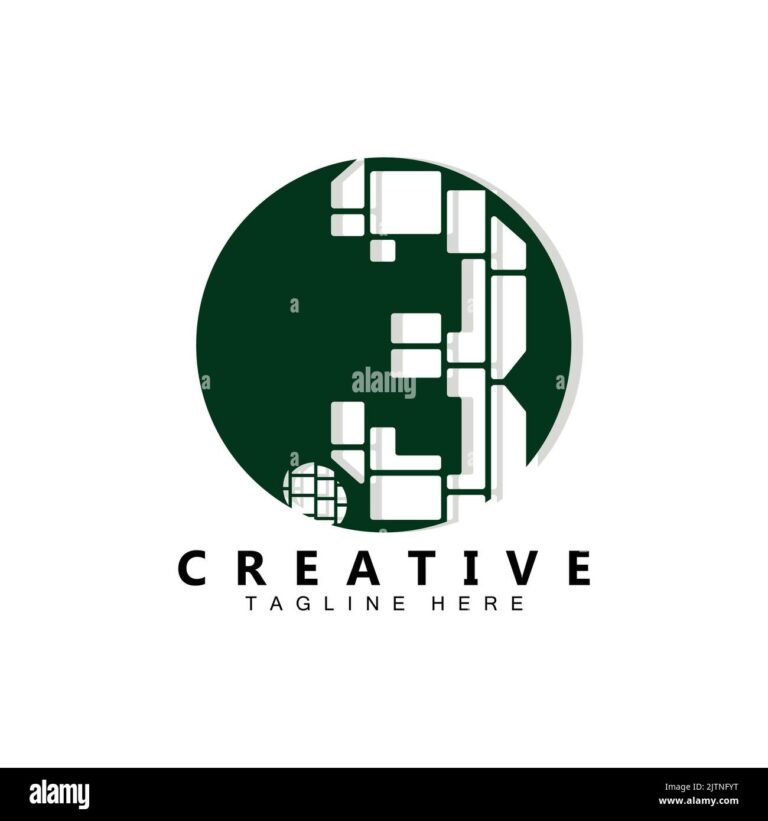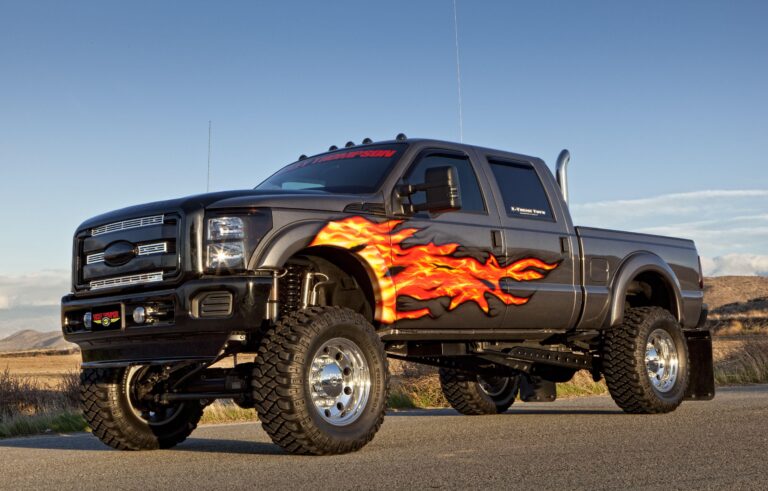Commercial Box Trucks For Sale: Your Comprehensive Guide to Driving Business Growth
Commercial Box Trucks For Sale: Your Comprehensive Guide to Driving Business Growth cars.truckstrend.com
In the dynamic world of commerce, efficient logistics and reliable transportation are not just advantages; they are necessities. For countless businesses, from burgeoning e-commerce startups and dedicated moving companies to versatile contractors and specialized delivery services, the commercial box truck stands as an indispensable asset. More than just a vehicle, it’s a mobile warehouse, a brand ambassador, and a cornerstone of operational efficiency, offering a secure and spacious solution for transporting goods of all shapes and sizes.
This comprehensive guide is designed to navigate the multifaceted landscape of commercial box trucks for sale. Whether you’re a first-time buyer looking to establish your fleet, or an experienced business owner aiming to expand or upgrade, understanding the nuances of these versatile vehicles is paramount. We’ll delve into everything from the different types and their features to the critical considerations during the buying process, ensuring you’re well-equipped to make an informed decision that drives your business forward.
Commercial Box Trucks For Sale: Your Comprehensive Guide to Driving Business Growth
Understanding Commercial Box Trucks: Types and Features
A commercial box truck, often referred to as a straight truck or cube van, is characterized by its separate chassis and an enclosed, rectangular cargo area (the "box") mounted directly onto it. This design offers immense flexibility and utility for businesses requiring secure and weather-protected transportation.
Key Features to Consider:
- Cargo Area Access:
- Roll-up Door: Common for ease of access in tight spaces, but can limit vertical clearance.
- Swing Doors: Offer full vertical clearance but require more space to open.

- Loading Aids:
- Liftgates: Hydraulic platforms that raise and lower cargo, invaluable for heavy or bulky items.
- Ramps: Foldable or pull-out ramps for easier loading of wheeled equipment or dollies.
- Interior Features:
- E-track Systems: Rails installed on walls for securing cargo with straps.
- Lining/Insulation: For temperature-sensitive goods (refrigerated/reefer trucks) or fragile items.
- Skylights: To provide natural light inside the box.

- Cab Style:
- Cab-over: Engine is beneath the cab, offering better maneuverability and visibility in urban settings.
- Conventional: Engine in front of the cab, typically more comfortable for long hauls.
Types and Sizes by Gross Vehicle Weight Rating (GVWR):
Box trucks are categorized primarily by their GVWR, which dictates their capacity and often, the driver’s licensing requirements.
- Light-Duty Box Trucks (Class 2-3):
- GVWR: Typically up to 14,000 lbs.
- Box Lengths: 10-14 feet.
- Common Uses: Last-mile delivery, small business hauling, local moving, parcel services.
- Licensing: Generally do not require a Commercial Driver’s License (CDL) in most states, making them accessible for many businesses.
- Medium-Duty Box Trucks (Class 4-6):
- GVWR: 14,001 to 26,000 lbs.
- Box Lengths: 16-24 feet.
- Common Uses: Furniture delivery, larger moving jobs, logistics, general freight, appliance delivery.
- Licensing: Usually do not require a CDL if the GVWR is under 26,001 lbs and it’s not transporting hazardous materials or a large number of passengers. However, regulations can vary by state and specific cargo, so always verify.
- Heavy-Duty Box Trucks (Class 7-8):
- GVWR: 26,001 lbs and above.
- Box Lengths: 26 feet and longer.
- Common Uses: Long-haul freight, large-scale logistics, specialized heavy equipment transport.
- Licensing: Almost always require a CDL.
Beyond these common types, specialized box trucks exist, such as refrigerated (reefer) trucks, curtain-side trucks (offering side access), and even some with sleeper cabs for long-distance operations.
Why Invest in a Commercial Box Truck? Key Benefits for Your Business
Acquiring a commercial box truck is a significant investment, but one that can yield substantial returns for businesses dependent on reliable transportation.
- Enhanced Efficiency and Control: Owning your fleet means you dictate schedules, routes, and delivery times, eliminating reliance on third-party carriers and their potential delays or surcharges. This streamlines operations and improves customer satisfaction.
- Cost Savings in the Long Run: While the initial outlay can be considerable, owning a box truck often proves more cost-effective than continuous rentals or outsourcing delivery services, especially for businesses with high transport volumes.
- Brand Visibility and Marketing: A box truck is a mobile billboard. With custom wraps or decals, your company’s logo, services, and contact information can be seen by thousands daily, significantly boosting brand awareness.
- Superior Cargo Protection and Security: The enclosed nature of a box truck protects goods from weather elements, theft, and damage during transit. Lockable doors and secure interior systems add an extra layer of security.
- Versatility for Diverse Needs: From delivering retail goods and transporting construction materials to moving household items or facilitating event logistics, box trucks are highly adaptable to a wide array of business applications.
- Increased Professionalism: Arriving in a well-maintained, branded commercial vehicle instantly conveys professionalism and reliability to your clients, enhancing your business’s reputation.
The Buying Process: A Step-by-Step Guide to Purchasing a Box Truck
Purchasing a commercial box truck requires careful planning and due diligence. Follow these steps to ensure a wise investment:
Step 1: Assess Your Business Needs
Before looking at trucks, define your requirements:
- Cargo: What will you be transporting (weight, volume, fragility, temperature sensitivity)?
- Routes: Are they urban, suburban, long-haul, or off-road? This impacts size, maneuverability, and fuel efficiency needs.
- Frequency: How often will the truck be used?
- Budget: Not just purchase price, but also ongoing costs (fuel, insurance, maintenance).
- Personnel: Who will drive it? Do they have the necessary licenses (CDL)?
Step 2: New vs. Used – Weighing Your Options
- New Trucks: Offer warranties, the latest technology, better fuel efficiency, and peace of mind. However, they come with a higher initial cost and rapid depreciation.
- Used Trucks: Significantly lower upfront cost, slower depreciation, and potentially quicker availability. The trade-off can be higher mileage, potential wear and tear, and limited or no warranty. For used, focus on well-maintained vehicles with complete service records.
Step 3: Budgeting and Financing
Beyond the sticker price, factor in:
- Down Payment: For loans.
- Interest Rates: If financing.
- Taxes and Fees: Sales tax, registration, title fees.
- Insurance: Commercial insurance is mandatory and typically more expensive than personal auto insurance.
- Operating Costs: Fuel, regular maintenance, tires, unexpected repairs.
Explore financing options like traditional bank loans, equipment leases, or manufacturer financing programs.
Step 4: Research and Inspection
- Research: Look at online marketplaces (e.g., TruckPaper, Commercial Truck Trader), commercial truck dealerships, and auctions. Compare models, features, and prices.
- Pre-Purchase Inspection (PPI): This is CRUCIAL for used trucks. Hire a qualified, independent mechanic specializing in commercial vehicles to thoroughly inspect the engine, transmission, brakes, suspension, electrical system, and the box structure itself.
- Vehicle History Report: Obtain a report (like Carfax or VINCheck) to check for accident history, flood damage, odometer tampering, and past titles.
Step 5: Test Drive
Don’t skip this. Drive the truck empty and, if possible, with a representative load. Pay attention to:
- Engine performance (acceleration, unusual noises).
- Transmission (smooth shifting).
- Brakes (responsive, no pulling).
- Steering and suspension.
- Visibility and maneuverability.
- Functionality of liftgate, doors, and other accessories.
Step 6: Negotiation and Paperwork
Negotiate the price based on your research and inspection findings. Once agreed upon, ensure all paperwork is correct: bill of sale, title transfer, odometer disclosure statement, and any warranty documentation. Understand your state’s specific requirements for registering commercial vehicles.
Important Considerations Before You Buy
- GVWR and CDL Requirements: Re-emphasize this. Misunderstanding GVWR can lead to legal issues, fines, and insurance problems. Always check your state’s specific CDL requirements for the truck’s GVWR.
- Fuel Type (Diesel vs. Gasoline):
- Diesel: More fuel-efficient for heavy loads and long distances, greater torque, longer engine life, but higher maintenance costs and often higher initial purchase price.
- Gasoline: Lower initial cost, cheaper to maintain, quieter, better for stop-and-go urban driving, but less fuel-efficient with heavy loads.
- Maintenance and Running Costs: Commercial trucks require rigorous maintenance. Factor in regular oil changes, tire rotations, brake inspections, and potential for more complex repairs. Consider service contracts or extended warranties, especially for used vehicles.
- Insurance: Obtain multiple quotes for commercial auto insurance. Factors affecting cost include GVWR, cargo type, driving history, and business type.
- Accessibility Features: Ensure the truck’s loading features (liftgate capacity, ramp length/width) match your cargo and operational needs.
- Storage and Parking: Where will you keep the truck when not in use? Ensure you have adequate and secure parking, especially for larger vehicles.
- Resale Value: Certain brands (e.g., Isuzu, Hino, Ford, Freightliner) and models tend to hold their value better, which can be a factor if you plan to upgrade in the future.
Tips for a Successful Purchase and Ownership
- Don’t Rush: Take your time researching, inspecting, and comparing options.
- Get a Professional Inspection: This is the single most important tip for buying a used truck.
- Factor in ALL Costs: Beyond the purchase price, account for taxes, fees, insurance, and ongoing operational expenses.
- Negotiate Confidently: Use your research and inspection findings as leverage.
- Understand the Warranty: If buying new, know what’s covered and for how long. For used, clarify if any dealer warranty exists.
- Prioritize Regular Maintenance: A well-maintained truck will last longer, perform better, and be safer.
- Consider Telematics: GPS tracking, fleet management software, and diagnostic tools can optimize routes, monitor driver behavior, and track maintenance needs.
Potential Challenges and Solutions
- High Initial Cost:
- Solution: Explore financing options like loans or leases. Consider well-maintained used trucks to lower the upfront investment.
- Unexpected Maintenance Expenses:
- Solution: Budget specifically for maintenance. Implement a preventative maintenance schedule. Build relationships with reputable commercial truck mechanics.
- Fuel Costs:
- Solution: Optimize routes to minimize mileage. Train drivers on fuel-efficient driving techniques. Consider more fuel-efficient models or alternative fuels if feasible.
- Finding the Right Truck:
- Solution: Clearly define your needs. Utilize online marketplaces and reputable dealerships with wide inventories. Be patient and thorough in your search.
- Regulatory Compliance (GVWR, CDL, DOT):
- Solution: Educate yourself thoroughly on federal and state regulations. Consult with an expert if unsure. Ensure all drivers are properly licensed for the vehicles they operate.
Commercial Box Trucks For Sale: Typical Price Ranges (USD)
This table provides general price ranges and should be used as a guide. Actual prices vary significantly based on mileage, condition, features, specific make/model, regional market conditions, and economic factors.
| Truck Type/Size | Condition | Typical Price Range (USD) | Key Features/Considerations |
|---|---|---|---|
| Light-Duty | New | $40,000 – $80,000+ | Lower GVWR (under 14,000 lbs), often gasoline engine. Ideal for local deliveries, small businesses. Features: Roll-up or swing doors, basic interior. |
| (10-14 ft box, Class 2-3) | Used (Good) | $20,000 – $45,000 | 50,000 – 150,000 miles. Good mechanical condition, minor cosmetic wear. May include basic liftgate. |
| Used (Fair) | $10,000 – $25,000 | 150,000 – 250,000+ miles. Visible wear, may require immediate maintenance. Budget-friendly entry point, but requires thorough inspection. | |
| Medium-Duty | New | $60,000 – $120,000+ | Mid-range GVWR (14,001-26,000 lbs), often diesel engine (for efficiency) or gasoline. Versatile for various freight types. Features: Hydraulic liftgate, E-track, larger box. |
| (16-24 ft box, Class 4-6) | Used (Good) | $30,000 – $70,000 | 80,000 – 250,000 miles. Well-maintained, reliable workhorse. May have advanced features like air brakes. |
| Used (Fair) | $15,000 – $40,000 | 250,000 – 400,000+ miles. High mileage, potential for significant repairs. Suitable for businesses with in-house mechanics or limited budgets, but high risk without thorough inspection. | |
| Heavy-Duty | New | $100,000 – $250,000+ | High GVWR (26,001+ lbs), typically powerful diesel engines. Built for heavy loads and long hauls. Features: Air ride suspension, larger fuel tanks, advanced safety systems. Requires CDL. |
| (26+ ft box, Class 7-8) | Used (Good) | $50,000 – $150,000 | 150,000 – 500,000 miles. Dependable for continued heavy use. Good service records are critical. |
| Used (Fair) | $25,000 – $70,000 | 500,000+ miles. May be nearing end-of-life or require major overhauls. Best for parts or specific, low-demand tasks if thoroughly inspected and repaired. | |
| Specialized | New | $80,000 – $200,000+ | Refrigerated (Reefer) trucks, curtain-side, custom builds. Prices vary greatly by specific features and complexity. |
| (e.g., Refrigerated) | Used (Good) | $40,000 – $120,000 | Includes specialized equipment inspection (e.g., refrigeration unit functionality). |
Frequently Asked Questions (FAQ)
Q1: What is GVWR and why is it important when buying a box truck?
A1: GVWR stands for Gross Vehicle Weight Rating. It’s the maximum operating weight of a vehicle as specified by the manufacturer, including the vehicle’s chassis, body, engine, fuel, accessories, driver, passengers, and cargo. It’s crucial because it dictates the legal weight limit the truck can safely carry and often determines if a Commercial Driver’s License (CDL) is required to operate it.
Q2: Do I need a CDL to drive a box truck?
A2: It depends on the truck’s GVWR. Generally, a CDL is required for vehicles with a GVWR of 26,001 pounds or more. For box trucks under this weight, a standard driver’s license is often sufficient, but always verify state-specific regulations and any endorsements needed for specific cargo (e.g., hazardous materials).
Q3: What’s the difference between a box truck and a moving truck?
A3: Functionally, they are very similar. "Box truck" is the general commercial term for a straight truck with an enclosed cargo box. "Moving truck" often refers to a box truck specifically configured and marketed for household or office moves, typically available for rent to the general public. Many commercial box trucks are used by professional moving companies.
Q4: How often do box trucks need maintenance?
A4: Commercial box trucks require regular preventative maintenance, often more frequently than personal vehicles due to their heavy use. This typically includes oil changes every 5,000-15,000 miles (depending on engine type and usage), tire rotations, brake inspections, and fluid checks. Follow the manufacturer’s recommended service schedule, and perform daily pre-trip inspections.
Q5: Should I buy a new or used box truck?
A5: The choice depends on your budget, risk tolerance, and specific business needs. New trucks offer reliability and warranties but come at a higher cost. Used trucks are more affordable upfront but carry higher risk without a thorough pre-purchase inspection and can incur more maintenance costs down the line. For many small to medium businesses, a well-inspected, quality used truck offers excellent value.
Q6: What should I look for during a pre-purchase inspection of a used box truck?
A6: Key areas include: engine (fluid leaks, smoke, strange noises), transmission (smooth shifting, no slipping), brakes (wear, fluid levels, responsiveness), tires (tread depth, uneven wear), suspension (shocks, springs, signs of sag), frame (cracks, rust), and the box body (damage, leaks, door functionality, liftgate operation). Always have a certified mechanic perform this inspection.
Q7: How much does commercial box truck insurance cost?
A7: Commercial box truck insurance costs vary widely, typically ranging from $3,000 to $10,000+ per year. Factors influencing the cost include the truck’s GVWR, cargo type, coverage limits, driving history of operators, location, and the specific insurance provider. Obtaining multiple quotes from commercial insurance specialists is recommended.
Conclusion
Investing in a commercial box truck is a strategic decision that can significantly impact your business’s efficiency, reach, and profitability. By carefully assessing your needs, understanding the various types and features available, diligently navigating the buying process, and being mindful of important considerations and potential challenges, you can acquire an asset that serves as a powerful engine for your operations.
Whether new or used, a well-chosen and properly maintained box truck offers unparalleled versatility, security, and the crucial ability to control your own logistics. It’s more than just a vehicle; it’s a mobile extension of your business, ready to deliver on your promises and drive your success forward in the competitive commercial landscape. Choose wisely, and hit the road to growth.




